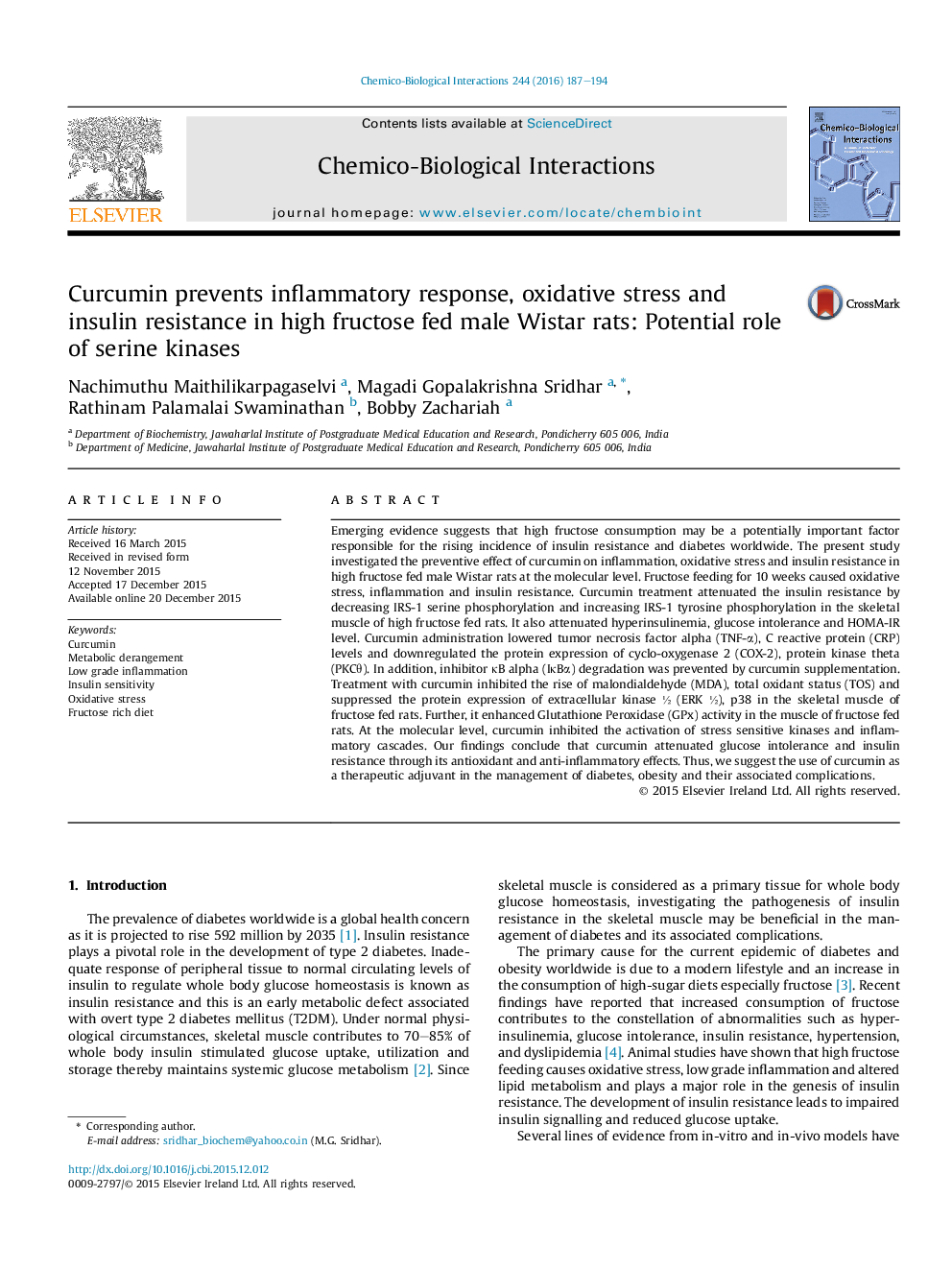| Article ID | Journal | Published Year | Pages | File Type |
|---|---|---|---|---|
| 2580056 | Chemico-Biological Interactions | 2016 | 8 Pages |
•Curcumin ameliorated glucose intolerance and insulin resistance.•Curcumin attenuated the redox imbalance and activation of stress sensitive kinases.•It suppresses the activation of inflammatory cascades.•Curcumin prevented the accumulation of triacylglycerol in the muscle.•It elicits positive effects on insulin signalling through modulation of serine and tyrosine phosphorylation of IRS-1 protein.
Emerging evidence suggests that high fructose consumption may be a potentially important factor responsible for the rising incidence of insulin resistance and diabetes worldwide. The present study investigated the preventive effect of curcumin on inflammation, oxidative stress and insulin resistance in high fructose fed male Wistar rats at the molecular level. Fructose feeding for 10 weeks caused oxidative stress, inflammation and insulin resistance. Curcumin treatment attenuated the insulin resistance by decreasing IRS-1 serine phosphorylation and increasing IRS-1 tyrosine phosphorylation in the skeletal muscle of high fructose fed rats. It also attenuated hyperinsulinemia, glucose intolerance and HOMA-IR level. Curcumin administration lowered tumor necrosis factor alpha (TNF-α), C reactive protein (CRP) levels and downregulated the protein expression of cyclo-oxygenase 2 (COX-2), protein kinase theta (PKCθ). In addition, inhibitor κB alpha (IκBα) degradation was prevented by curcumin supplementation. Treatment with curcumin inhibited the rise of malondialdehyde (MDA), total oxidant status (TOS) and suppressed the protein expression of extracellular kinase ½ (ERK ½), p38 in the skeletal muscle of fructose fed rats. Further, it enhanced Glutathione Peroxidase (GPx) activity in the muscle of fructose fed rats. At the molecular level, curcumin inhibited the activation of stress sensitive kinases and inflammatory cascades. Our findings conclude that curcumin attenuated glucose intolerance and insulin resistance through its antioxidant and anti-inflammatory effects. Thus, we suggest the use of curcumin as a therapeutic adjuvant in the management of diabetes, obesity and their associated complications.
Graphical abstractFigure optionsDownload full-size imageDownload as PowerPoint slide
